Sustainability Management
Find out more on how the TRATON GROUP translates its sustainability purpose and ambitions into action and results.
Download PDFAn effective transport system is fundamental to a resilient economy. The efficient flow of goods and people is a critical enabler of development outcomes, contributing to food security, education, poverty reduction, inclusive growth, and more.
At the same time, transport in its current form is associated with negative impacts, such as greenhouse gas emissions, air pollution, traffic congestion, or road accidents. Safe, affordable, and efficient transport solutions are not available to all.
We must consider the impact of transport solutions on sustainable development goals from a life-cycle perspective – from the extraction of raw materials to the end of life of our vehicles.
“We want a CO₂-neutral future, and to achieve this, we are doing much more than just the minimum required of us. Our brands will be drivers of change as we move toward zero-emission transportation solutions.”
Christian Levin CEO TRATON SE
At TRATON, we define sustainability as aligning our business activities with the aspirations of sustainable development. We acknowledge that we are part of a global industrial and transport ecosystem that needs to transform to become sustainable.
Guided by our purpose “Transforming Transportation Together. For a sustainable world.”, we work as a Group alongside our brands Scania, MAN, International, and Volkswagen Truck & Bus. Together, we continuously challenge and evolve our operations to better meet the expectations of our customers, customers’ customers, employees, investors, and wider society, including all of us.
TRATON adopts a transformative approach to sustainability. This implies fundamental changes to products and services all the way to our relationships with suppliers, customers, and partners, while ensuring relevance in the transition in the different parts of the world. Furthermore, we are active in shaping policies and collaborations to shoulder our responsibility for the systemic changes needed.
We are embedded within a global industrial and transportation ecosystem that is undergoing a necessary transformation. To focus on what is most important and use our resources efficiently, while making impact, we have identified three Joint Impact Areas: Decarbonization, Circularity, and Human Rights.
These are the areas where we have impact as a Group, where we will win together and learn together. For each Joint Impact Area, we have identified a commitment that indicates our long-term purpose and ambition.
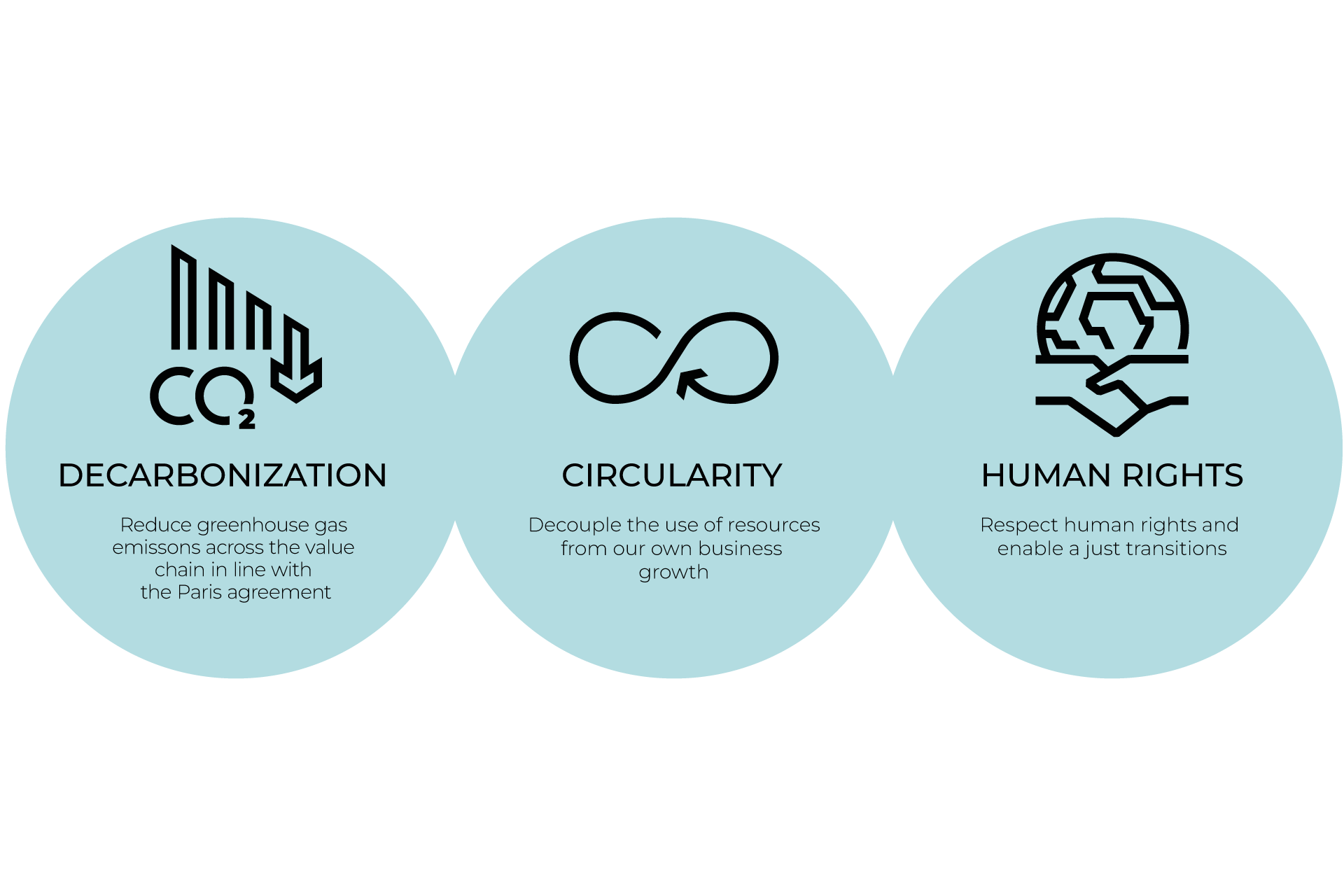
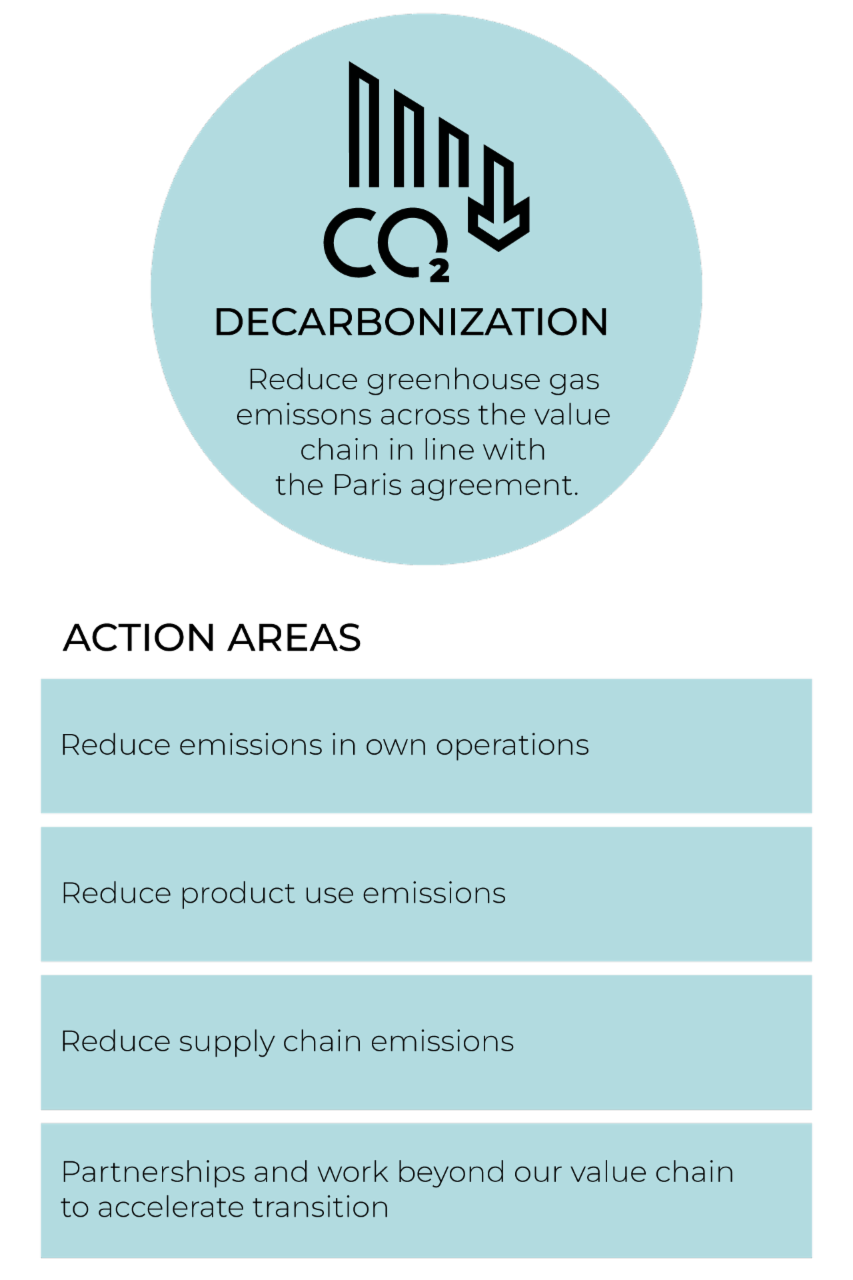
Commitment to Climate Action: We are dedicated to reducing greenhouse gas emissions across the value chain in line with the Paris agreement.
Ambitious Decarbonization Targets:
Two brands, Scania and MAN, together representing more than two thirds of the Group's annual sales volume (FY2024), have approved science-based targets.
In 2020, as the first ever OEM, Scania committed to SBTi. In 2024, new interim targets were set for 2032:
However, these targets are not SBTi approved, as the Automotive Standard pathway is still under development by SBTi.
Furthermore, MAN committed to reduce
The remaining TRATON brands operate in markets with an absence of clear emission reduction pathways for the heavy-duty transport industry, as well as insufficient enabling conditions, and have thus also established internal GHG reduction targets.
Reducing Operational Emissions: We are actively cutting emissions within our own operations (Scope 1-2) in line with the Paris Agreement. Currently, 75% of the electricity in our production comes from renewable sources and our European production is already powered by 100% renewable energy.
Decarbonizing Scope 3 Emissions: Electrification is the core strategy to decarbonize our sector, with biofuels providing essential short-term emission reductions, particularly in regions where electrification is less feasible. This effort depends on strong collaboration with governments, businesses, customers, and stakeholders. Regulatory pressure from the EU and US is driving change and we are advocating for market conditions that support global transportation decarbonization.
Accelerating Electrification: Despite regulatory progress, key enablers for widespread battery electric vehicle (BEV) adoption – such as robust infrastructure – are still missing. Through initiatives like our joint venture Milence, we are tackling systemic challenges, including public and depot charging, to speed up the transition to electrified transport.
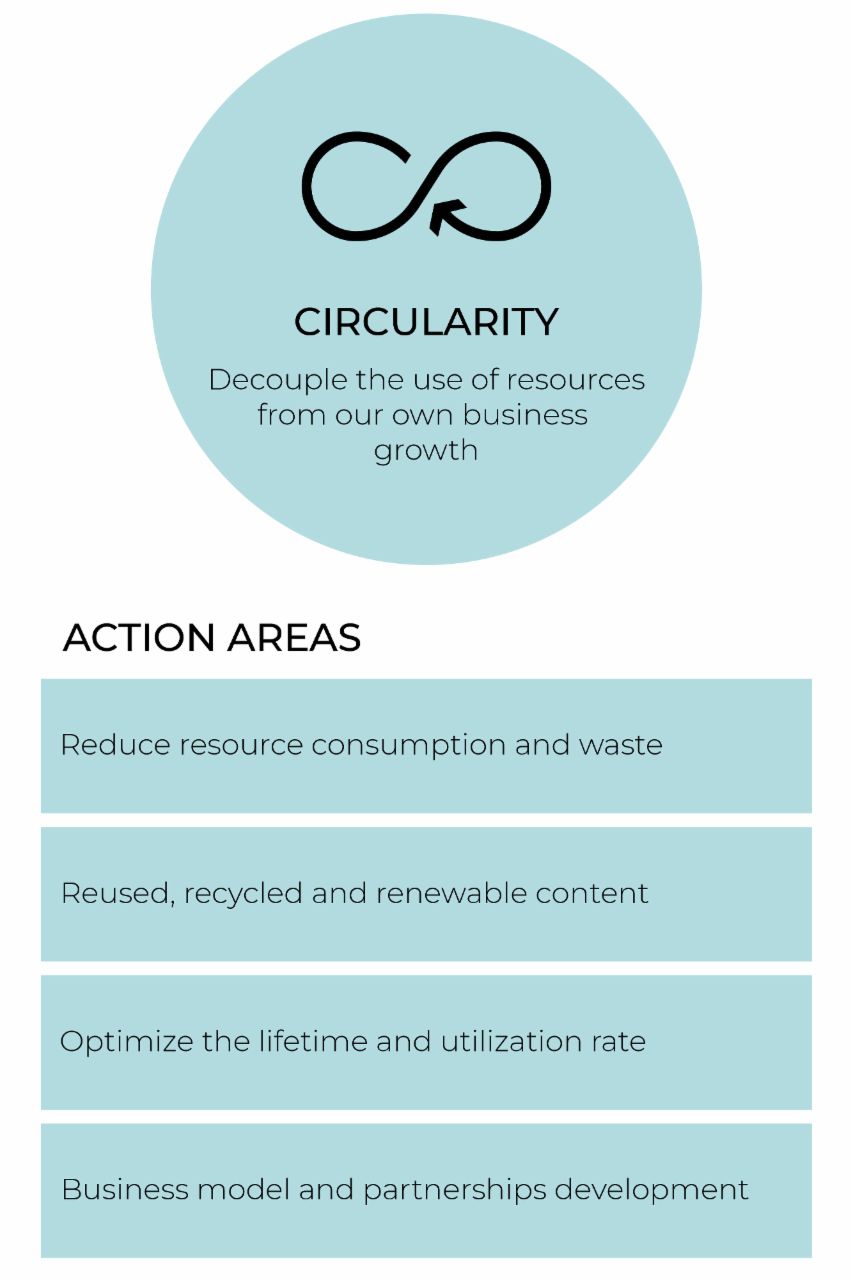
Commitment to Sustainable Growth: We are dedicated to decoupling resource consumption from business growth, ensuring that our expansion does not come at the cost of increased environmental impact.
Material Impact in the Shift to BEVs: As we transition to battery electric vehicles (BEVs), the environmental impact of raw material extraction becomes a critical issue. We are addressing this by implementing a holistic circular strategy across the TRATON GROUP to minimize resource use.
Embracing Circular Design: Our approach integrates circular principles into product design, setting circularity performance framework, and promotes scaling up of remanufacturing and other circular services. This strategy aims to boost efficiency, enhance resilience, and support long-term sustainability in our operations.
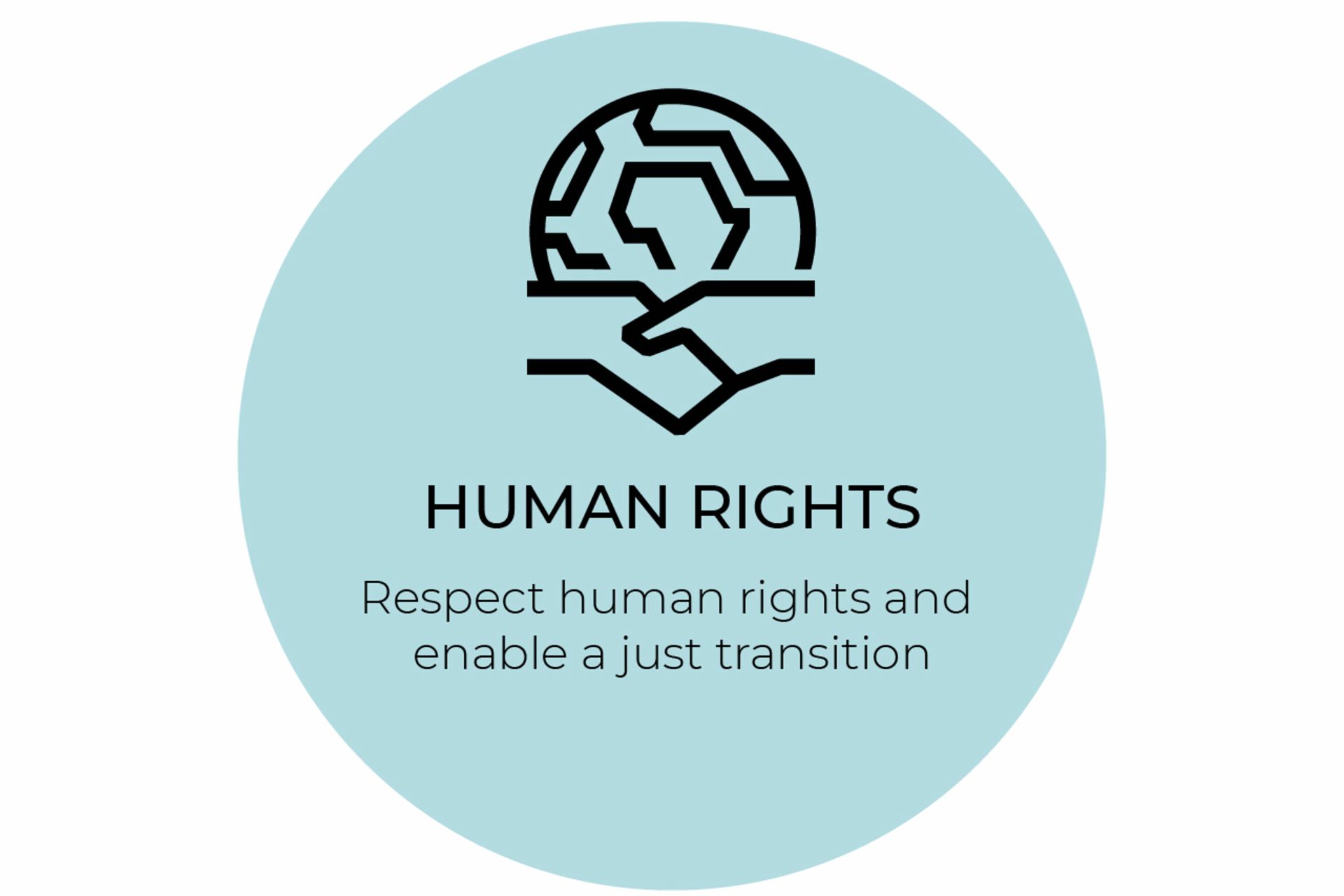
Commitment to Human Rights: Alongside addressing climate change, we are equally committed to upholding human rights and ensuring a just transition. We work closely with our brands and partners to minimize negative impacts and protect human rights throughout our supply chain.
Ensuring a Just Transition: Our responsibility extends beyond mitigating climate and environmental risks. We are dedicated to ensuring that the transition is fair and equitable for all those affected by our operations, actively amplifying the voices of stakeholders across our value chain.
Promoting Diversity and Inclusion: To support this transition, we prioritize diversity and inclusion, focusing on fostering the skills and workforce transformation necessary to drive sustainable growth and innovation.
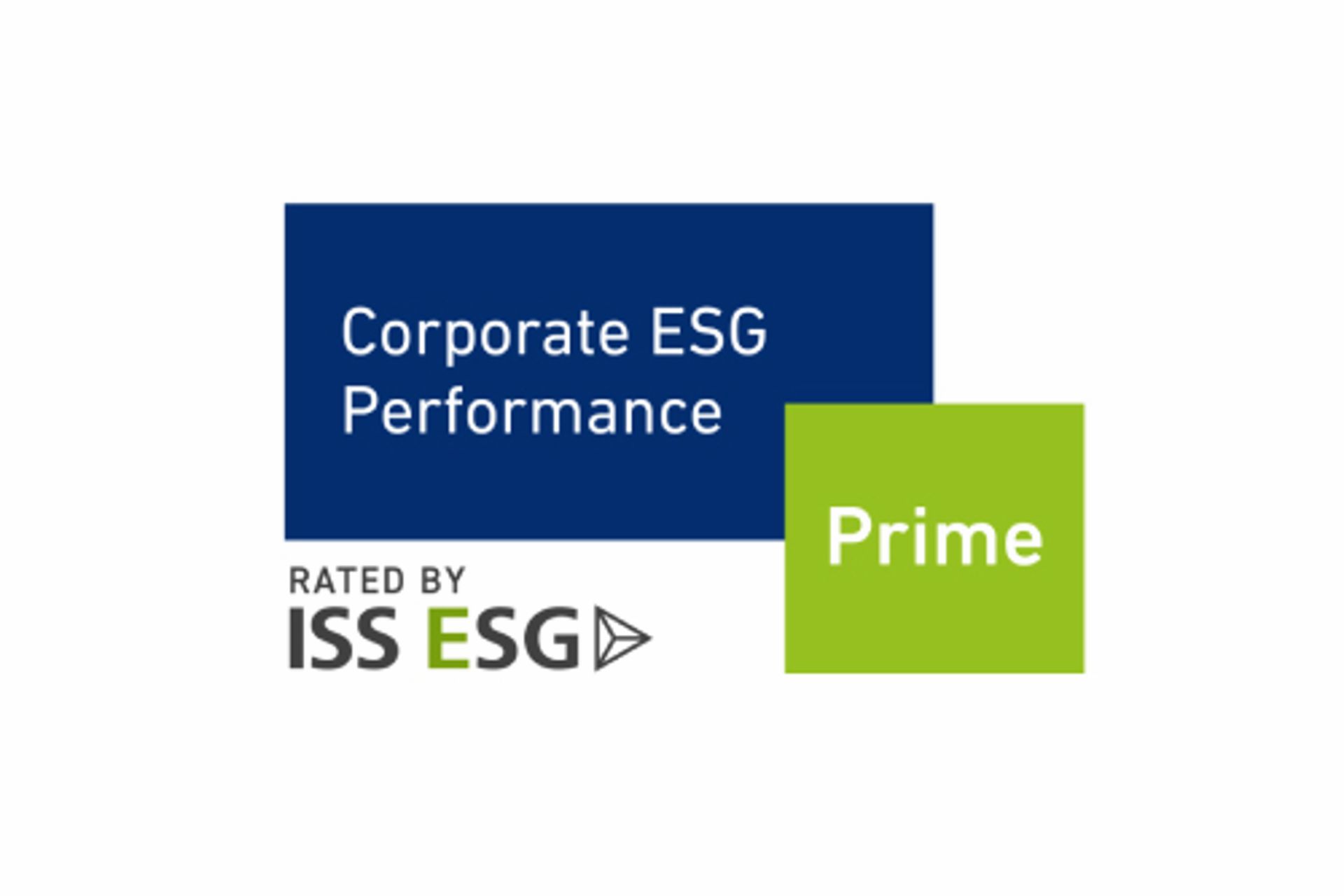
Sustainability ratings provide an independent analysis and an outside-in perspective, thus helping companies to view their own sustainability performance against their peer group. They serve as proof that a company has incorporated the concept of sustainability and also act as the basis for decisions made by customers and investors.
Renowned environmental agency ISS ESG has rewarded TRATON with “Prime” status and a “B-” rating (on a scale of A+ to D–) for its sustainable value creation efforts in the machinery sector (as of June 2025).
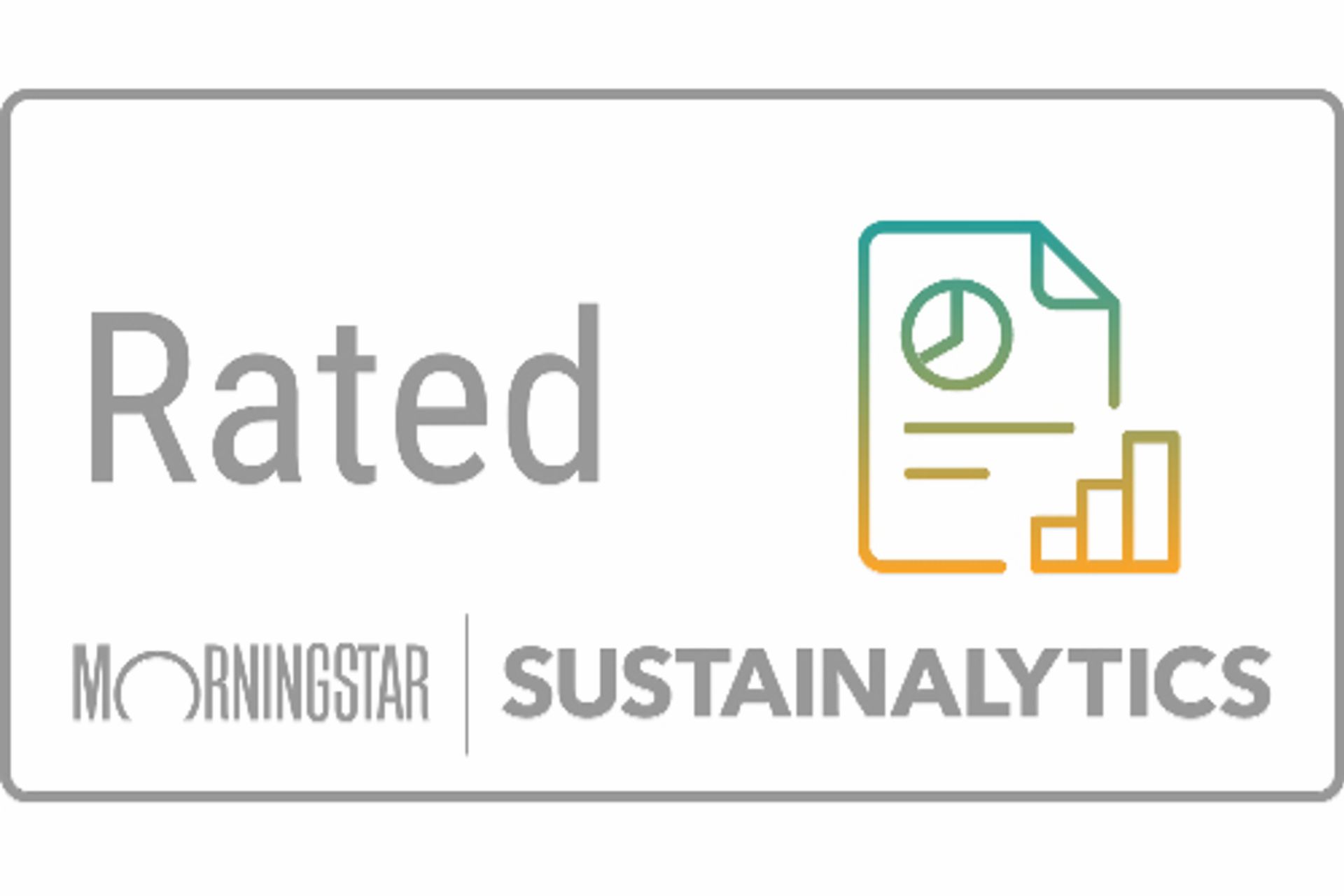
In May 2025, TRATON was assessed by the ESG agency Sustainalytics. Sustainalytics classified the risk of ESG factors having a material impact on the company's financial position as “high”.
Copyright © Sustainalytics, a Morningstar company. All rights reserved. This article includes information and data provided by Sustainalytics and/or its content providers. Information provided by Sustainalytics is not directed to or intended for use or distribution to India-based clients or users and its distribution to Indian resident individuals or entities is not permitted. Morningstar/Sustainalytics accepts no responsibility or liability whatsoever for the actions of third parties in this respect. Use of such data is subject to conditions available at https://www.sustainalytics.com/legal-disclaimers/